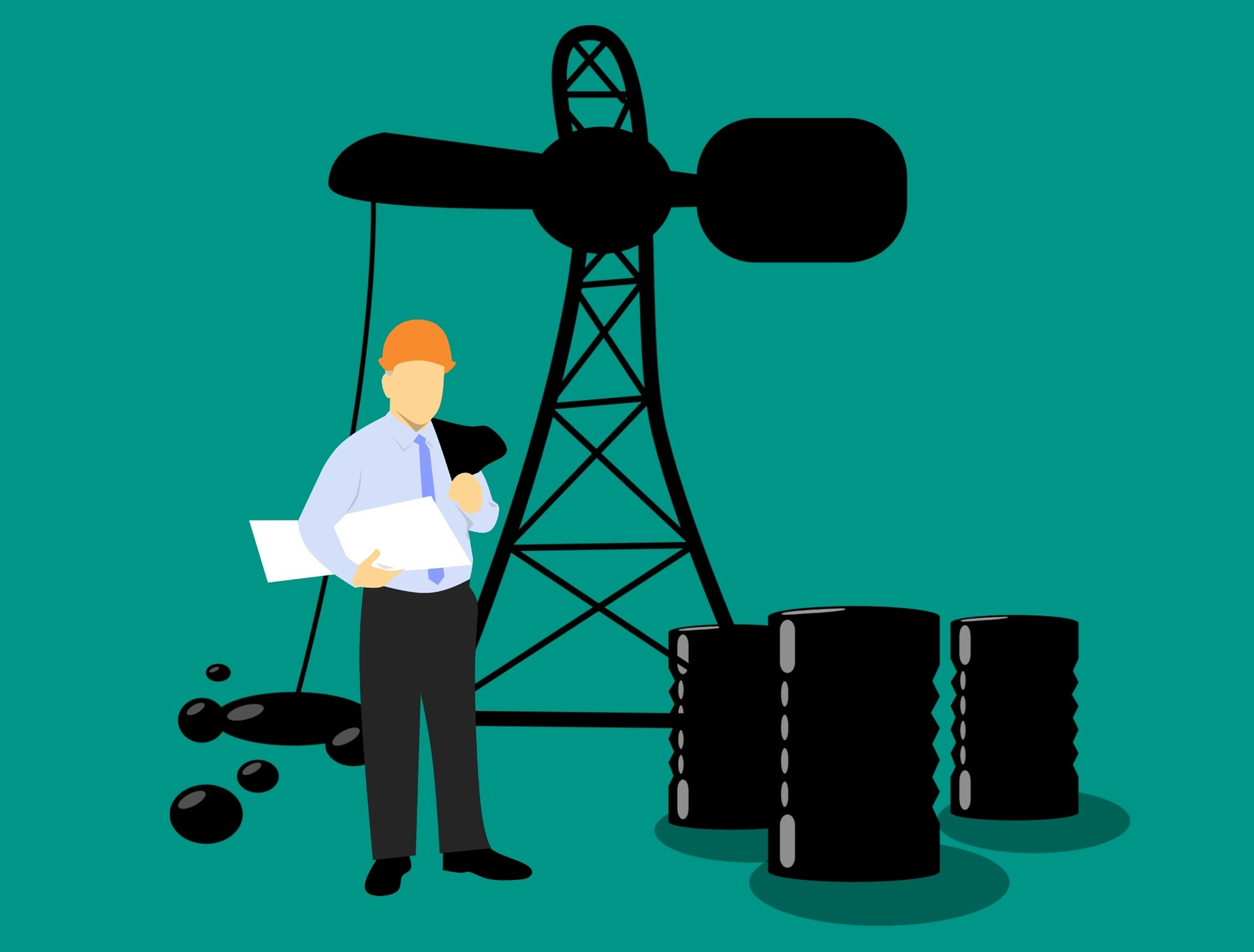If you’re the kind of person who prefers a hard labor job, working on an oil rig can seem like a good deal. Sure, you work long hours in risky conditions, but the pay is fantastic. Especially if you aren’t married and don’t have kids, this can seem like an ideal setup.
But most of us don’t know much about what working on an oil rig is really like. How dangerous is the work, and what are the conditions like? Read on to learn more about offshore oil rig jobs and what they involve.
Table of Contents
Different Offshore Oil Rig Jobs
There are a number of different jobs on an offshore oil rig, and they all come with different risks and pay grades. You can work as a driller, derrickman, mudman, roughneck, motorman, crane operator, or many, many other positions.
It all depends on what you want to do and how much you want to make.
Roustabouts and roughnecks are the usual entry-level positions for people working on these oil rigs. They transport materials and do tool and work-site cleaning, as well as assemble and service equipment and mix drilling mud. On the higher levels, you have drillers, who lead the crew during daily operations, and tool pushers, who manage the entire rig.
Safety Measures
As you might expect, there are a ton of safety measures on these offshore oil rigs. We all know about the Deepwater Horizon disaster and the resulting oil spill that demolished BP. Oil companies do not want a repeat of that, so they make sure to put in plenty of rules to keep workers and equipment safe.
As a basic safety measure, offshore drill workers each get issued a hard hat, safety glasses, safety boots, and coveralls. Every piece of lifting equipment is color-coded to indicate that it was deemed safe to use during the last equipment check. Workers make sure all pathways are clear to avoid tripping hazards, which can cause major problems on these rigs.
Training and Certification
Because the job can be so dangerous, workers on oil rigs go through rigorous training and certification courses. Employees have to earn a Basic Offshore Safety Induction Emergency Training (BOSIET) certificate. It’s also a good idea to get a Well Control certification, especially if you want to move past entry-level.
The IADC started in Texas and is the certification most often accepted in the US and around the world. You can do their coursework online at a cheaper price than you might find other certification courses. The International Well Control Forum, or IWCF, is a program based out of Scotland that offers more international certification programs.
Dangers of These Jobs
We all know oil rig jobs are dangerous, but not many of us know what it is that makes them so risky. For one thing, the work environment is tremendously stressful; you work long days for weeks on end without seeing your family or loved ones.
That alone makes it harder to work at the sort of peak performance levels you want on a rig like these.
There are a lot of fall risks associated with working on an oil rig, and we don’t mean just from tripping. You may need to go on an outboard walkway at night, and one misstep can mean certain death. There are also dangers associated with working around heavy machinery and with the transportation required to get from where you live to your work site.
Rates of Injury
So how common is it for employees to get injured or killed during their work on offshore oil rigs?
Between 2003 and 2013, more than a thousand workers died on oil rig jobs, averaging out to about twenty-five deaths per 100,000 workers. The fatality rate in the oil and gas extraction industry is consistently among the highest in the nation.
Even for employees who aren’t killed, there is an alarming number of life-altering injuries. In 2016, twenty workers a month ended up in the hospital or lost a limb while on the job. Many wind up hiring an offshore accident lawyer to handle their case.
And those are just the cases we know about. As many as 60 percent of employees who received burns on the job never report them.
Average Salaries
So if this line of work is so dangerous, why do so many people want to work on these offshore oil rigs? Because of the risk associated with the work, oil rig employees have fantastic salaries. Like anything, though, it depends on what level you are in the organization.
In general, roughnecks (entry-level workers) will start off making about $37,000 a year. Higher-level workers like motormen and drillers can make around $54,000 a year. And if you’re the tool pusher or rig manager, you can expect to make upwards of $90,000 a year.
Life on an Oil Rig
Working on an oil rig isn’t exactly a 9 to 5 sort of job. In fact, many workers will work for weeks on end and then have big chunks of time off.
Many employees will work a 14/21 rotation, meaning they have fourteen days working on the rig and then twenty-one days off after that. Considering that you wind up only working 60 percent of the year, which makes the salary seem a whole lot better.
When you’re on the rig, you can expect to stay in accommodations that could qualify as five-star hotels. If you smoke, you’ll need to do so in specially-designated rooms with safety matches designed for these rigs. When you get ready to fly into the rig, you’ll need to take the batteries out of any electronic devices, and you may have to give up your cell phone.
Learn More About Career Options
Working on offshore oil rig jobs certainly carries risks. There’s a lot that can go wrong and not a lot of room for error. But if you’re up to the work, the pay can be fantastic, and the work schedule isn’t half bad. It’s a matter of knowing the risks and weighing the rewards.
If you’d like to learn more about other career options, check out the rest of our site. We have articles about automotive, legal, technology, and more. Check out our articles about careers today.











